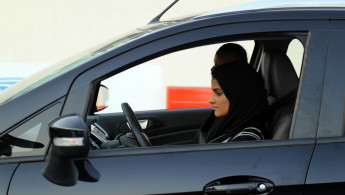HRW slams Saudi Arabia's 'unprecedented crackdown' on activists ahead of end of women's driving ban
An international human rights group has slammed Saudi Arabia's "hypocrisy" in its "unprecedented crackdown" on women's rights activists, just as the kingdom prepares to lift a decades' long driving ban on women.
Crown Prince Mohammed bin Salman's announcement last year that women would be allowed to drive from June 2019 was hailed from some sections of international media, but Human Rights Watch said this - and other much publicised reforms - are merely cosmetic changes if activists continue to be jailed.
"Instead of celebrating the lifting of the ban, the arrests [of women's rights activists] have set us quite a long way back," said Rothna Begum, a women's rights researcher at Human Rights Watch.
"The crackdown is unprecedented and unique in two ways," explained Begum. "Not only is it targeting women's rights activists by the sheer number arrested, but never have they had to tout their reforms at the same time while arresting people championing these reforms."
The advocates - who include leading figures in Saudi Arabia's women's rights movement such as Lujain al-Hathlol and Aziza al-Yusuf - were arrested on a bizarre list of charges, including "transgressing national and religious principles" and working with "foreign entities".
Since 15 May - less than a month of the much anticipated lifting on the ban - at least 19 women activists have been arrested, eight of whom have been released since.
"There are at least 11 activists currently detained under serious accusations," added Hiba Zayadin, a Saudi researcher in the Middle East division.
Zayadin also references Vogue Arabia's front cover June edition after it featured a glamorous Saudi princess on its cover this month.
"We see Vogue celebrating 'trailblazers' while the real ones are behind bars. In a moment worth celebrating, the people most deserving of joining celebrations are unable to."
Begum adds that part of the reason for the crackdown is bin Salman's wish to take full credit for reforms.
"All the champions are missing from the story. Bin Salman wants us to believe he is a reformer - that this is his vision - and there is no one else behind it. Not only has he quashed activists, but he is also attempting to revise history."
"If they give away driving, they would know they need to give more. If you allow women's rights activists to take what they asked for, they will ask for more. Younger women will realise activism works."
"The reforms themselves are minimal," adds Begum, "but MbS wishes to impress that he is the sole reformer. As a citizen in the country, you can only be grateful to the reforms given to you, you are unable to demand reforms yourself."
 |
MbS wishes to impress that he is the sole reformer. As a citizen in the country, you can only be grateful to the reforms given to you, you are unable to demand reforms yourself |  |
Saudi Arabia has described the activists as "traitors" in commentary condemned by Amnesty International as a "chilling smear campaign" and an "extremely worrying development for women human rights defenders" in the country.
Referring to the detainees as "agents of the embassies", political analyst Naif al-Asaker tweeted that anyone who did not support their arrest was either a "covert partner" or simply "ignorant".
"Social media led a coordinated and vicious campaign branding them as traitors, as collaborators," said Zayadin.
"On the front pages of news outlets, accused of suspicious contact with hostile elements. We've seen these types of accusations before, a vague catch all used to suppress all dissent."
Crown Prince Mohammed bin Salman, 32, is seen as the force behind the lifting of the ban, part of a series of reforms being pushed by the powerful royal in the conservative kingdom.
His economic Vision 2030 economic reform plan, for a post-oil future, seeks to elevate women to nearly one-third of the workforce, up from about 22 percent now.
Saudi activists say social change will only be cosmetic without dismantling the kingdom's rigid guardianship system, which requires women to seek permission from a male relative to study, travel and other activities.Political freedoms have also been severely curtailed during a recent purge of powerful figures or suspected opponents.





 Follow the Middle East's top stories in English at The New Arab on Google News
Follow the Middle East's top stories in English at The New Arab on Google News


